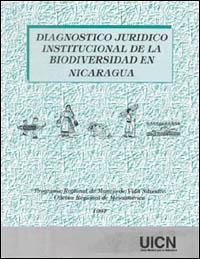

Related content
Using the IUCN red list criteria at the national level : a regional consultative workshop for South and Southeast Asia… : proceedings and recommendations
A regional workshop was held to develop a shared understanding of the IUCN global Red List criteria, threat categories and the process of listing species according to the threat of extinction with an emphasis on lessons learned, key constraints and priority needs. The report presents country status reports from Cambodia, India, Indonesia, Lao PDR, Malaysia, Nepal, Pakistan, Philippines, Sri Lanka, Thailand and Vietnam, plus conclusions and recommendations.
Global strategy on invasive alien species
The spread of invasive alien species (IAS) is creating complex and far-reaching challenges that threaten both the natural biological riches of the earth and the well being of its citizens. Summarising key findings of the Phase I Synthesis Conference held in September 2000 in Cape Town, Republic of South Africa, this publication presents ten strategic responses that address how to mitigate the threats of IAS. Directed toward the decision-makers whose policies and practices are affecting the movement of species around the world, this strategy strives to provide a resource to increase awareness and provide policy advice.
Land, people and forests in eastern and southern Africa at the beginning of the 21st century : the impact of land relations on the role of communities in forest future
The way in which forest land is owned directly influences the status of the forest, its condition and the way in which it is managed. The greater the security of local forest tenure, the stronger the interest and will of the community towards its security. One of four papers commissioned by IUCN towards building a comprehensive profile on the subject of community involvement in forest management in eastern and southern Africa, this publication addresses the function of property relations and State-people relations in matters of governance and management. The study is comparative in nature, with a continuing examination of commonality and difference in the handling of property rights in respect of rural communities.

